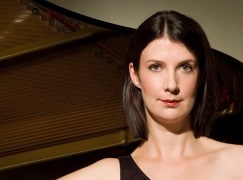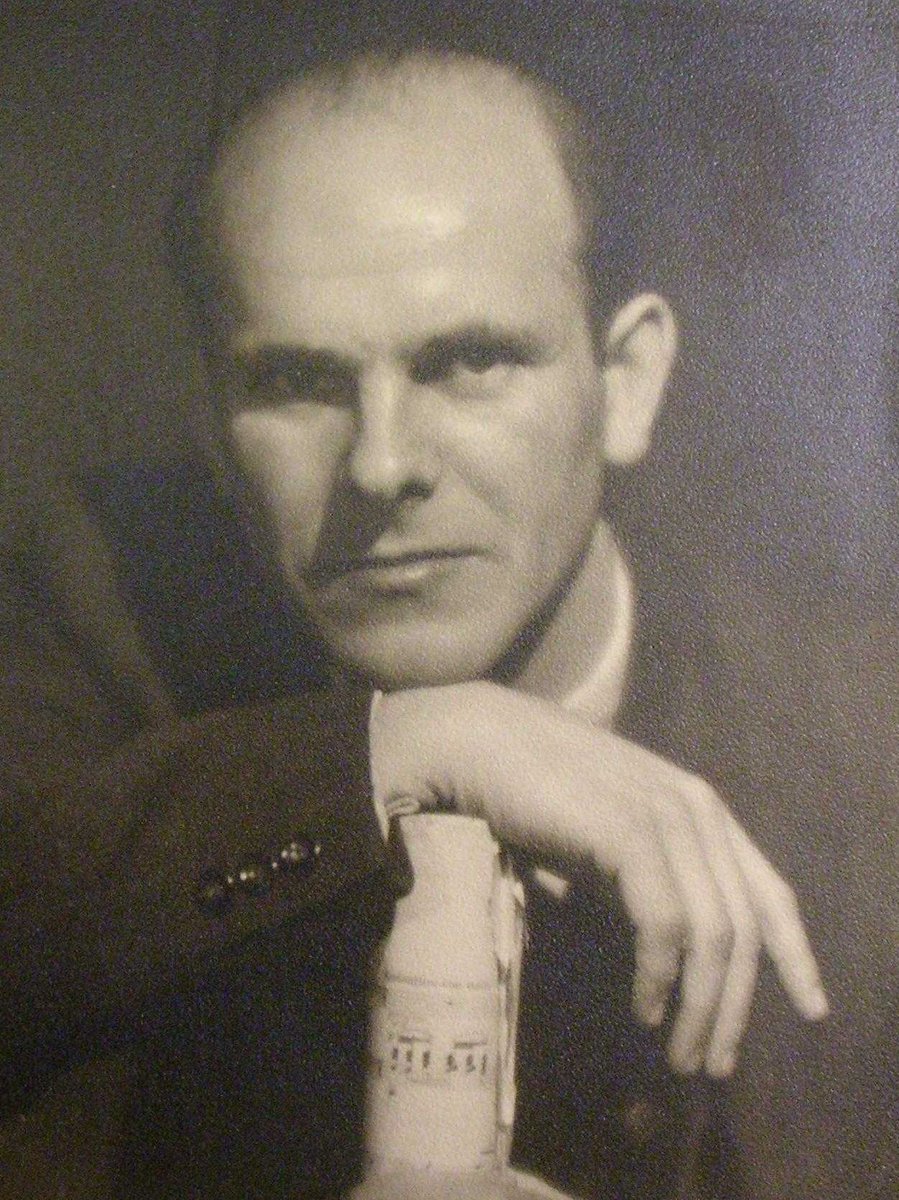A pianist finds music has died in Australia
mainAnna Goldsworthy despairs of having to play for audiences of pension age.
It is reassuring to imagine that our audiences will naturally renew themselves, but last year, on tour with my trio, Seraphim, I started to have my doubts. We began in Macedon, Victoria, where we delivered eulogies for two cherished audience members who had recently passed away; we then performed Beethoven, who did the job better. Up in Queensland, a chamber music society president confessed that since many of her former subscribers could no longer leave their homes, the society was drawing down its financial reserves and would soon shut up shop. In New South Wales, our presenter revealed that he was suffering from dementia, and was not sure how much longer he could continue.
Read the full depressing essay here.






I just read it.
I cannot speak for Australia. Here in the U.S., a large part of the problem starts at birth.
Our country is failing our children.
Even those who come from privileged backgrounds can often get through primary and secondary school with barely any rudiments in classical music pedagogy.
Those from impoverished backgrounds? All bets are off.
Wondering why people with little to no exposure — outside of movies or video games — to classical music don’t attend concerts, is a bit like wondering why people with little or no exposure to civics don’t vote, or people who are functionally illiterate don’t read.
That is only one aspect of the problem, but it is an important one.
Anna Goldsworthy’s well written and insightful essay deserves a headline that’s less tabloid.
What if people just did not turn our for her concerts? Not exatly a large enough sample size of concerts to make a judgement about all of Australia.
When I was in Australia not too long ago visiting Gary Thorpe and his wonderful staff at classical 4MBS Brisbane, I was struck by how vibrant the music scene was in Australia. Fine orchestras and youth orchestras, places that still sold classical CDs, and extremely enthusiastic audiences. Things seem to be doing just fine in that part of Australia!
Last year I attended some classical concerts in China and was impresed by the fact that there were so many families with even small and perfectly behaving children. Never saw such a thing in Europe, Russia, USA or Australia. Concert organisers would be well advised to sell family tickets where children can get to concerts cheaply.
Other problem: concert presenters are so timid. The want Beethoven and Brahms, thats it, total boredom. Already Prokovjev is a problem. Such a programming is really a symptom of Alzheimers disease, with loss of any vision and imagination.
However the public is much more adventurous than these presenters imagine. Recently a musician proposed a night concert in Berlin with works of Ustwolskaja. The concert organisers objected predicting that they would not even get an audience of 100. The musician insisted and at the end there were 1500 people in the hall. So try and dare and you will have a living audience.
In principle, I agree.
But inflicting Ulstvolskaya upon an audience which has probably nothing committed to deserve this, is taking the risk that all those 1500 people who turned-up will never ever visit an ‘adventurous’ concert again in their life.
Also, the question arises whether Beethoven and Brahms are just boring composers, or the safe choice MAKES them boring. These two were pretty avantgarde in their time, yes, even Brahms (whose music once inspired a 19C critic to rename the emergency exits in the hall into ‘Exit in case of Brahms’.
Those connected with orchestras here in the US have been bemoaning the “grayness” of the typical symphony audience for many decades. I agree that it would be wonderful to get more people of all ages interested in serious art music, but an aging audience by itself does not mean that the art form is in peril.
An older audience is less likely to have small children at home requiring child care arrangements (and expenditure) for an evening out; they may have achieved greater career advancement, lessening the need to work all hours of day and night, and likely providing them with sufficient income to support spending on discretionary activities such as concerts, or they may be semi- or fully retired, with more time available to pursue such interests. And given that the complaint has been the same for at least the last couple of generations, it is logical to conclude that as the eldest shuffle off this mortal coil, they are replaced by those graduating from young whippersnapper-dom.
Italy is not much better off. Sadly, the average concert or opera goer is around 60, despite the discounts that many orchestras offer to younger people. This is just one more proof of the fact that without a proper musical education we are doomed. To top it off, our politicians deem music absolutely unimportant, acting consequently and trashing centuries of music history as if it was nothing.
Take a look here http://www.gianmariagriglio.it/culture-shall-not-feed-you/
and here http://www.gianmariagriglio.it/drowning-culture/
Gianmaria Griglio
I confess I do get a bit tired of this endless discussion about the age of audiences. Opera is even more obessessed with it. I live in Sydney Australia and attend on average 5 concerts/opera a week. Yes, the majority of the audience are over 50, but I see a huge number of young people particularly on the weekends. Lets face it, before 50 most ‘youing’ people are busy with career, raising family, paying the mortgage – time and money arent there for concerts unless they are very committed to their music. I attend chamber concerts where a 220 seat venue is sold out and people buy standing tickets. And believe me, its not Beethoven or Brahams either!
Do I have to travel to Oz to hear something by Brahams?
It”s the economy stupid (to borrow Bill Clinton’s winning line.) I have taken my three teenagers to see Seraphim, which they enjoyed very much. All three I have raised to adore classical music. They study classical voice and piano. We attended all of Caramoor this summer, and to Europe as well for the spring Whitsun Festival in Austria.
But 4 opera tickets at the MET costs me $2,000.
In the American economy, ten percent own eighty percent of the wealth. Expect that field to narrow even more.
Classical music is largely supported by individual plutocrats or their corporations. It is arbitrary and ego based, perhaps not unlike Salzburg in Mozart’s time.
–Which is the problem. That didn’t work out well for Mozart either. What we need here is far less spending by our military industrial complex, whose expenditures are largely unchecked, outsized, and have drained the public coffers since 1945.
America is calitalism par excellence–which relies on weaponry for profit, and which diverts public funded warfare for private profit (Halliburton.)
Had we a government for the people, education could be better, cheaper, and more generous to the arts. Training the ear ideally begins in youth.
As it is, all children are being encouraged to be STEM scholars (science, technology, engineering, math,) and very, very few receive encourgement in arts. Most parents and teachers here hope to produce the next Steve Jobs, not the next Mozart.
–No loving parent wants their kid to starve: That’s the choice between computer science and music.
I was married to a plutocrat (whom I divorced.) Or I wouldn’t be able to afford to take my kids to concerts or afford their extra-curricular music training.
They are usually the only young people in attendance at music events, unless the tickets are cheap.
The forces driving the death of classical music are structural/economic. The context is a merciless 21st century capitalism.
Here in Boston you can get rush tickets for the BSO concerts. Each costs $9. However, one has to arrive three to four hours before the performance and wait in line to get the ticket. This inconveniences many people, including many of my friends, who would like to hear a concert, but don’t want to be bothered with waiting.
There is also a College Card Program. Essentially, they are giving away unsold tickets. A student signs up on the list, pays a $25 one-time enrollment fee, registers his or her e-mail and then receives announcements about unsold tickets a couple of days before the concert. The tickets are given at the BSO Box Office on first come-first serve basis.
Rush tickets are subsidized by the estate of a plutocrat’s widow. College Card is subsidized by the plutocratic Arbella Insurance Corp.
A student ID from any of Boston’s institutions of higher learning will get you either a free ticket or a deep discount. You just have to show up and ask. Also, many concerts are completely free of charge, as there will be the performance of Mozart’s Requiem this Sunday at Harvard.
So it’s not all about the economy, and not all is the fault of global capitalism. I would say it’s more about changing tastes, inability to be put up with slight inconveniences, as well as young people’s expectation of instant gratification, which classical music does not provide.
You can compare the musical life in Boston and Pyongyang. There is no capitalism there, but classical music is not exactly thriving either.
There are many factors in play. Lack of music education in the schools, for one. The economy is another problem. The well to do keep the classical arts running. Also, how many times are you going to program Beethoven’s 5th Symphony before the crowds start to thin out?